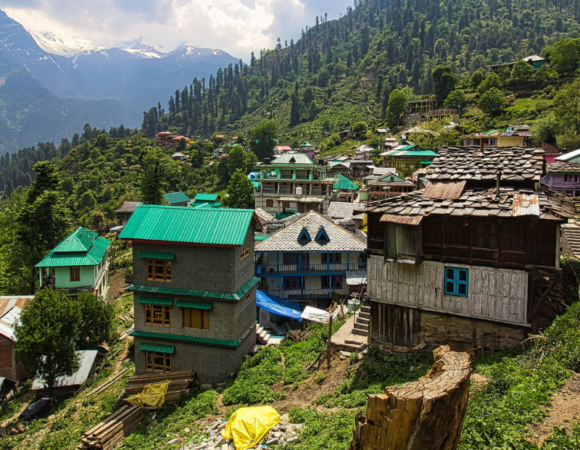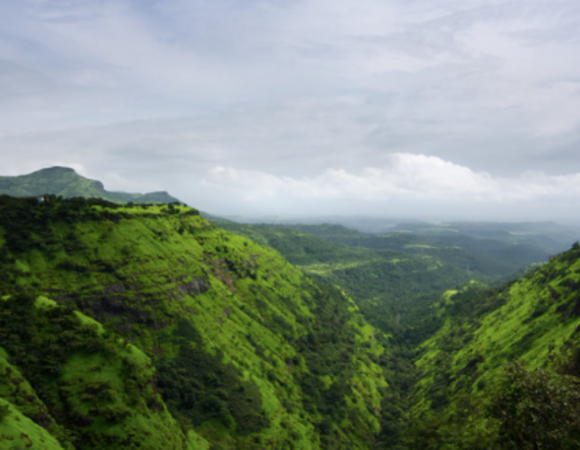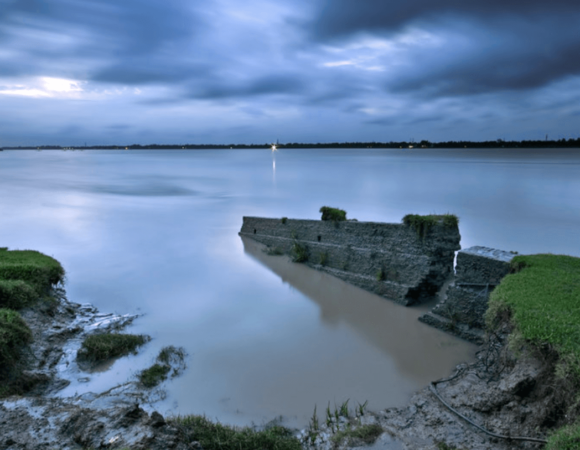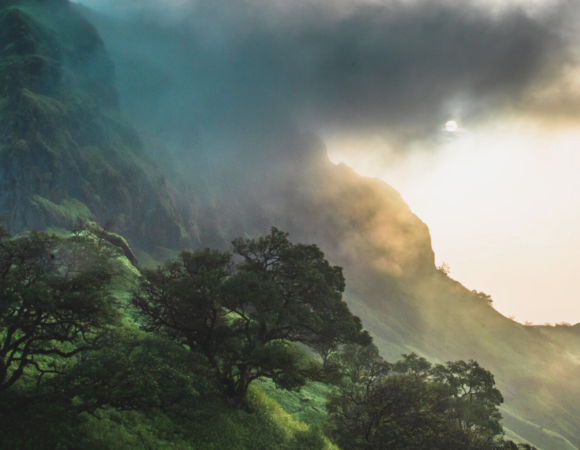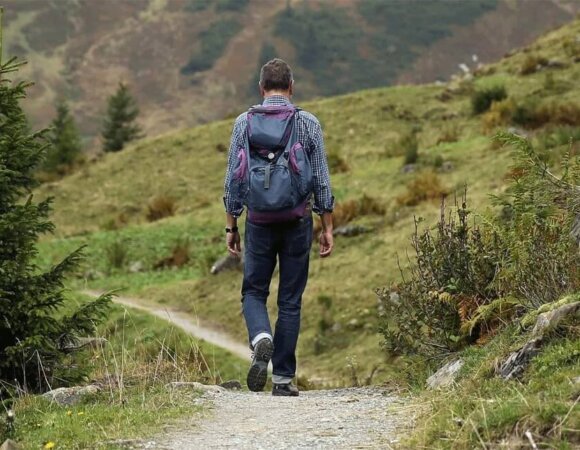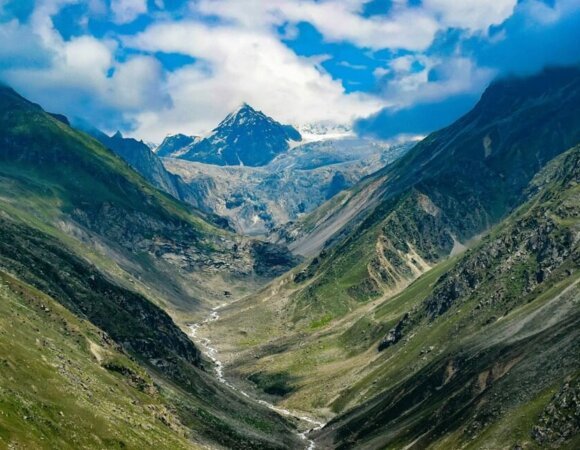Mountaineering Course Complete Guide: Things to Know, How to Enroll, Courses, Institutes & FAQs
Table of Contents
ToggleMountaineering, also known as mountain climbing, is the sport of reaching or trying to reach the highest peak in mountain areas, primarily for the gratification of the climb. Even though the term is commonly implemented for strolling up low mountains with only medium difficulty, it’s more properly restricted to climbing in areas where its terrain and weather introduce such hazards that a specific amount of prior experience is required for safety. Mountain climbing is a dangerous sport for the inexperienced.
Mountain climbing differs from other outdoor sports in that the environment provides the person involved with the area of activity. Nearly all of the difficulties. Climbing mountains exemplifies the rush that comes from putting one’s courage, resilience, craftiness, vigor, skill, and endurance to the test.
Mountaineering Course: Things To Know Before Signup
Here are some of the most basic things you need to know:
Mountaineering Course: Where can I apply?
The best mountaineering course in academic institutions in India include:
- NIM (Nehru Institute of Mountaineering) 1965, Uttarkashi, Uttarakhand
- HMI (Himalayan Mountaineering Institute) 1954, Darjeeling, West Bengal
- JIM & WS (Jawahar Institute of Mountaineering) 1983, Pahalgam, Kashmir
- ABVIMAS (Atal Bihari Vajpayee Institute of Mountaineering and Allied Sports) 1961, Manali, Himachal Pradesh
- NIMAS (National Institute of Mountaineering and Allied Sports) 2013, Dirang, Arunachal Pradesh
NIM and HMI are the most well-known in India. Because NIMAS is a newer institute, the waiting list will be shorter if you apply there. ABVIMAS offers the same course in a shorter time frame.

Mountaineering Course: Fee Structure
The training fee at the majority of these organizations ranges between Rs 14,000 and Rs 18,500. The fee can be higher for international students. For more details, you can send an email or call these institutes. Also, the fee is waived for all cadets who meet the criteria for the course through NCC.
Mountaineering Course: Medical Examination
All the trainees must undergo a mandatory comprehensive medical examination before enrolling in the course. If you have any of the following diseases, you cannot apply for the course.
- Respiratory and cardiovascular problems.
- Pleurisy or asthma history.
- Recurrent bouts of pharyngitis or sinusitis.
- Blood pressure should not exceed 140 mm Hg Systolic and 90 mm Hg Diastolic.
- Chest expansion must be at least 5 cm.
- Students should not have osteoarthritis, sacrosciatic syndrome, ingrowing toenails, multiple corns, internal knee derangement, inguinal hernia, varicose veins, or repetitive shoulder joint dislocation.
Mountaineering Course: How To Prepare?
HMI Darjeeling has created an excellent twelve-week pre-course workout regimen to assist you in preparing for the basic mountaineering course. However, it is essential to recognize that health at sea level and health at high altitude is not the same thing. It’d be advantageous if you had prior experience at high altitudes before enrolling in a course like this.

Running on a 5-8 km track, weight lifting, and high-intensity exercises like crunches and push-ups are some of the common things that you might be asked to perform by the trainers.
Mountaineering Course: Language
Language barriers may arise during your training. Trainees from all over India, as well as some foreigners, participate. The classes will be taught either in English or Hindi, based on the location of the centers and the convenience of the instructors.
Mountaineering Course: Assessment
It varies from institute to institute but the basic criteria are all more or less the same. Usually, they assess you on the basis of Rockcraft, Icecraft, Endurance, and a written test. Other things that matter in your assessment include teamwork, survival tests, and mountain manners.

Mountaineering course: How to Enroll?
All the institutes that offer mountaineering courses have their respective websites where you can get information regarding enrollment. They usually support both online and offline applications.
You can enroll by submitting an online form and paying the course fee, which will reserve your position in the course of your choice.
The offline procedure is a little more time-consuming, as it entails users downloading the form and mailing it to the institute along with the payment information.
Mountaineering course: Enrollment Procedure
Step 1: After choosing your preferred institute(s) go to their respective websites and go to the “courses” or “admission” tab.
Step 2: Choose the course you would like to enroll in. If you are a beginner then choose the “basic mountaineering course”. Here you would also have to select the preferred batch as the institutes have multiple batches.
Step 3: Go through the application procedure. This may take anywhere between 30 mins to 1 hour. Take your time but do not make mistakes.
Step 4: You will get an option for the application fee payment (online/offline). Pay the fees and do not forget to take a printout of the application form and the payment receipt.
It’s essential to mention that most institutes have a 6-month waiting list for their courses. i.e., their classes are booked up at least 6 months in advance, whereas institutes such as NIM require you to book your courses a year ahead of time.
Best Mountaineering courses in India
Here are some best mountaineering courses available in India:-
1. Basic Mountaineering Training (BMC)
The most famous mountaineering course and the ideal method to get started in mountain climbing is the Basic Mountaineering Course. This course comprises all the basics of mountaineering. There are various renowned institutes that provide BMC courses for absolute beginners.
| Age Limit | 16 – 40 Years |
| Time Duration | 28 Days |
| Course Fee | INR 15,000 to 17,000/- Per Person |
Basic Mountaineering Training (BMC) Course Objectives:-
- Basic techniques of movement on rock, snow and ice.
- Theoretical and practical knowledge of mountaineering and allied subjects, like Navigation, Map reading, Weather, Medicines, Mountain Hygiene etc.
- Right attitude to enable viewing mountaineering as an art and much more than just a physical or adventure activity.
- To motivate people from all walks of life to higher endeavor.
- To provide the students with appropriate and pertinent reading material and mountaineering literature.
- To instruct them on how to take care of their health and maintain comfort in the mountain environment.
- To strengthen their bodies by enhancing their capacity to withstand hunger, cold, and tiredness.
- To strengthen their bodies by enhancing their capacity to withstand hunger, cold, and tiredness.
2. Advanced Mountaineering Course (AMC)
The Advance Mountaineering Course is the next step up from the Basic Mountaineering Course, and a top grade will qualify you to lead expeditions. Only individuals with an “A- ALPHA” grade on their BMC can take part in an AMC. You’ll trek up to Basecamp, where you’ll spend a couple of days reviewing what you learned on your BMC. You’ll trek from Basecamp to Advance Base Camp, in which you’ll learn advanced mountain climbing skills, expedition planning, and more. You are also expected to organize and carry out an excursion to a 5500-meter-high peak. The average wait time for an AMC is one year.
| Eligibility | Grade ‘A’ in BMS training |
| Time Duration | 28 Days |
| Course Fee | INR 15,000 – 20,000/- Per Person |
Basic Mountaineering Training (BMC) Course Objectives:-
- Advance techniques of climbing on rock, snow and ice.
- Planning and Execution of an expedition in the Great Himalayas.
- Scientific and technical aspects of mountaineering and allied subjects.
- To empower a trainee with vast knowledge of actual climbing done in expeditions.
3. Search and rescue (SAR)
For all of you who take mountaineering more seriously and aspire to guide major expeditions. SAR is incredibly useful because it teaches you how to manage emergencies, perform rescues, organize evacuations, and save lives in dire circumstances. Self-reliance and building your confidence to perform rescue operations are key components of SAR.
| Eligibility: | Grade ‘A’ in AMC training |
| Course Fees: | INR 15,000-17,000/- Per Person |
| Duration: | 23 days |
Career Objectives:-
- Rescue techniques on rock, snow and ice.
- Basic lessons on first-aid, mountain navigation, radio telephony.
- Liaison with various organizations and their involvement during rescue operations.
- Audio and Visual communication signals and evacuation methods including use of helicopters.
4. Method of instruction (MOI)
MOI or method of instruction is more based on how to transfer knowledge and training of others. If you wish to become a climbing or outdoor instructor in schools or in the adventure industry, this is the course you need.
| Eligibility: | Grade ‘A’ in AMC training |
| Course Fees: | INR 15,000-17,000/- Per Person |
| Duration: | 28 days |
- To improve the instructional capabilities on the participants.
- To enable you to impart mountaineering lessons confidently to trainees.
- To be able to act as a guide.
Best Mountaineering Institutes In India
These are some of the mountaineering courses in India. India currently has four best institutes recognized by Indian Mountaineering Foundation (IMF):
- Nehru Institue of Mountaineering (NIM)
- Atal Bihari Vajpayee Institute of Mountaineering and Allied Sports (ABVIMAS)
- Himalayan Mountaineering Institute (HMI), Darjeeling
- Jawahar Institute of Mountaineering & Winter Sports (JIM&WS)
- National Institute of Mountaineering and Allied Sports (NIMAS)
These are some of the best mountaineering institutes in India:
1. Nehru Institute of Mountaineering (NIM)

Nehru Institute of Mountaineering (NIM) is one of the best mountaineering institutes in India and is also considered to be the most prestigious mountaineering institute in Asia. It is situated in Uttarkashi. They offer various mountaineering courses throughout the year. Apart from mountaineering courses they also offer skiing courses.
The Nehru Institute of Mountaineering offers the following professional mountaineering courses:
- Adventure Course
- Basic Mountaineering Training
- AMC (Advanced Mountaineering Course)
- S&R (Search and Rescue)
- MOI (Methods of Instruction)
- Special Course
- Skiing Course
2. Atal Bihari Vajpayee Institute of Mountaineering and Allied Sports (ABVIMAS)

ABVIMAS is the largest adventure sports training facility in India. It consists of lecture halls, libraries, museums, hostels, etc. The institute offers multiple courses for people like us who are interested in mountaineering courses.
ABVIMAS offers the following professional mountaineering courses:
- Basic mountaineering course (26 days)
- Advanced mountaineering course (28 days)
- Method of instructions (28 days)
- Special basic mountaineering course (26 days)
- Special advanced mountaineering course (28 days)
3. Himalayan Mountaineering Institute (HMI), Darjeeling
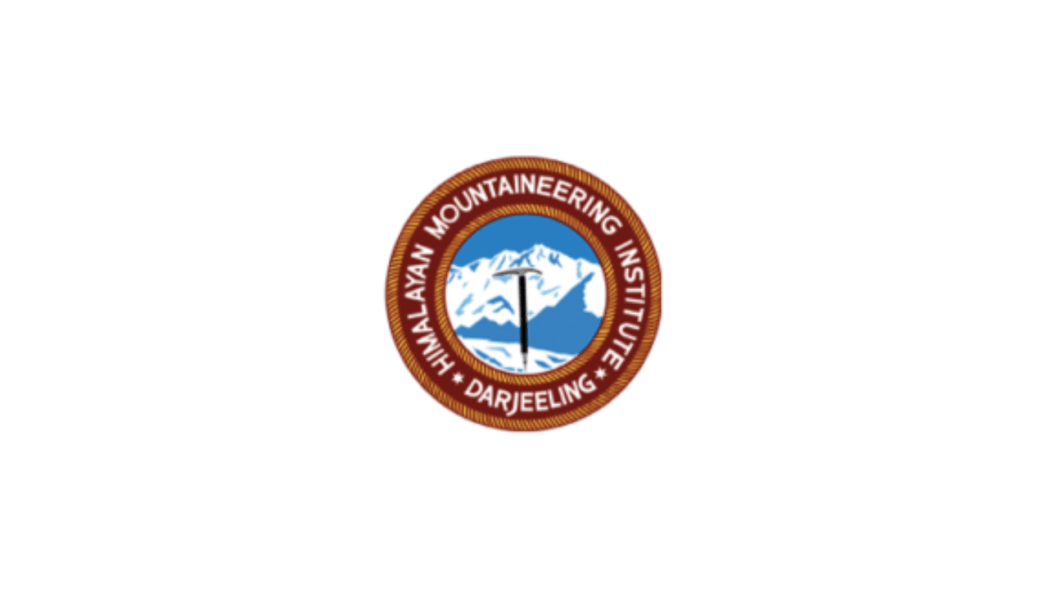
HMI is situated in Darjeeling, West Bengal. It is one of the most prestigious mountaineering institutes in India. It is also among the 4 institutes recognized by the IMF. It was set up in 1954 with Tenzing Norgay as the first Director of Field Training of the institute.
Himalayan Mountaineering Institute offers the following mountaineering courses:
- Basic Training
- Advanced Training
- Instructional Method Adventure Course
- Special Courses at Actual Cost
4. Jawahar Institute of Mountaineering & Winter Sports (JIM&WS)
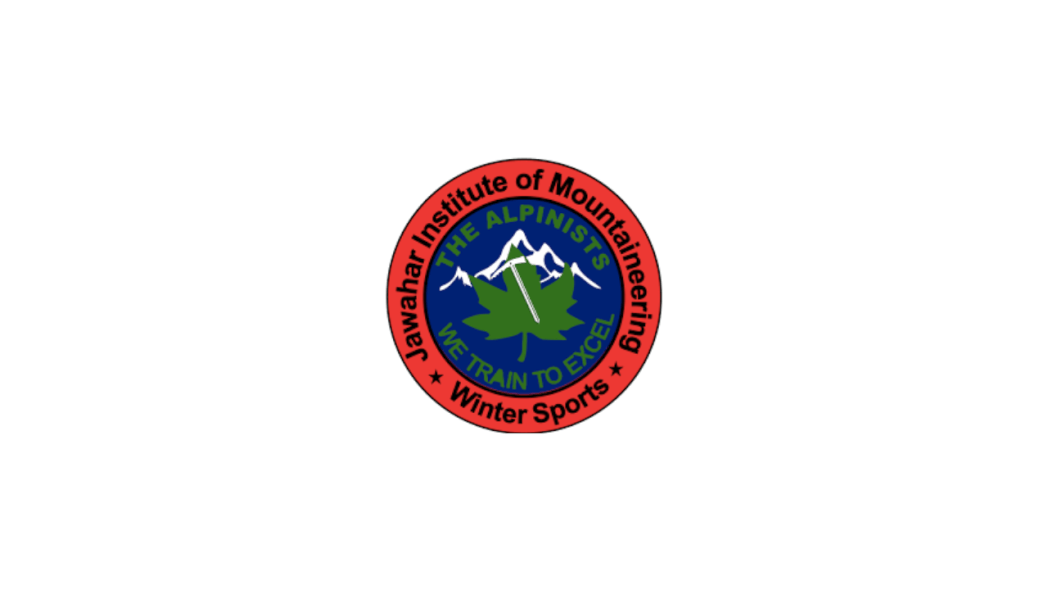
JIM, Pahalgam is a national institute for mountaineering, skiing, and other winter sports. They offer a wide range of courses starting from beginners to advanced.
Jawahar Institute of Mountaineering and Winter Sports offers the following mountaineering courses:
- JIM&WS mountaineering courses:
- Basic mountain climbing
- Advanced mountaineering (MOI)
- Search and rescue
- JIM&WS Adventure Courses:
- Basic Skiing
- Intermediate Skiing
- Advanced Skiing.
5. National Institute of Mountaineering and Allied Sports (NIMAS)

NIMAS is an autonomous institute under the Ministry of Defense. It provides training in mountaineering, rescue, and other adventure sports (like scuba diving, paragliding, etc). It is situated in the West Kameng district of Arunachal Pradesh at an altitude of approximately 7000 ft.
The National Institute of Mountaineering and Allied Sports offers the following mountaineering courses:
- Course on Instructional Methods (21 Days)
- Search and Rescue Training (21 Days)
- Advanced Mountaineering Training (32 Days)
- Basic Mountaineering Training (28 Days)
- Course in White Water Rafting Fundamentals (12 Days)
- Course in Mid White Water Rafting (12 Days)
- Advanced Paragliding Training (P3 Level) (8 Days)
- P1 & P2 Level Basic Intermediate Para Motor Course ( 15 Days)
- P1 & P2 Level Basic Intermediate Paragliding Course (10 Days)
Mountaineering Course: Career Scope
The sport of mountaineering involves climbing mountain peaks. Someone who engages in mountaineering is a mountaineer. In the past, people’s interest in this field was virtually nonexistent for a variety of reasons. As a result of scientific advancements, this industry has become a viable career option that is respected and well-paying. There is nothing better than a career in mountaineering if you love mountains and live a vibrant and fierce lifestyle.
1. Porter:- Porters supervise and assist those hiking, trekking, or climbing in the mountains by lifting their loads.
2. Trekking Guide:- Trekking guides provide support and guidance to people who wish to go trekking in the mountains.
3. Liaison Officer:- For the safety of people, liaison officers supervise the appropriate administration of climbing, trekking, and camping activities.
4. Mountaineering Agency Owner: In this way, one may become the owner of a mountaineering agency that organizes all of these activities such as hiking, climbing, trekking, mountaineering, and camping services.
5. Mountain Climbing Guide:- Since it allows you to connect with people from all throughout the globe, this is a wonderful job, and it boosts your communication and networking abilities significantly.
Mountaineering Course: Final Thoughts
Mountaineering can be a very rewarding job, but be sure to have some backup that will support you financially as well. As a fixed-income career, mountaineering may not be able to support a family of four for very long. In the short run, it will definitely give you a feeling of macho-ness and liberation. In the long run, only a few stable and determined people will succeed.
Read more: Highest Peaks in the World
You are introduced to mountaineering through the Basic Mountaineering Course. As a result of BMC, you will learn the basic techniques of movement on rock, snow, and ice. That is why if you love to stay in mountains and looking for career options you must start your mountaineering course now.
Best time to plant a tree was 10 years ago, next best time is today
Unknown
Frequently Asked Questions for Mountaineering Course
Where do I begin for the mountaineering course?
The best way to begin is to go on simple one-day hikes, which can be along a well-defined route or with a team, however for somebody just beginning out, always go with an expert.
Is the mountaineering course suitable for me? If I covered small treks?
No, the lowest mountaineering expeditions usually last seven and ten days, and you should develop to become comfy with living in the outdoors for at least 2-3 days. Life in a tent overnight sounds like fun when you only have to return the next day, but it isn’t always fun once you have to do it over many days. Our lives are so intertwined that we have forgotten how to unplug.
Will I be a mountaineer after finishing the course?
Like most things, practice is required to determine which circumstances you are confident navigating and also which you are not. There is no rush; the adventure is yours; climb more mountain ranges, test your equipment, practice your abilities, and maybe after a few years, you’ll realize you’re still a pupil on this longstanding mountaineering journey.
Can I take a mountaineering course if I’ve never been to altitude?
A few individuals make the mistake of thinking that taking a basic mountaineering course will be a trip, only to discover that our bodies operate differently at altitudes.
What is a mountaineering course?
It is the foundation course that introduces men and women to mountaineering. Among the objectives of BMC is: teaching the basic techniques of movement on rocks, snow, and ice.
How do I become a certified mountaineer?
It is typical for institutes to require completion of the Basic Mountaineering Course (with a certain grade) in order to enroll in the Advanced Mountaineering Course. It is possible to apply for the Method of Instruction and/or the Search and Rescue course after completing the Advanced Mountaineering Course (with a certain grade).
How long is a mountaineering course?
Normally, BMCs and AMCs last for 28 days, whereas SARs and MOIs last for 15-21 days. In order to undergo the AMC, you must have an A grade in BMC, and an A grade in AMC for the other two.
What are the types of mountaineering?
Alpine and Expedition mountaineering are the two main types of mountaineering.
What can I do after the basic mountaineering course?
Himalayan Porters, Himalayan Trek Leaders, Himalayan Climbing Guides, Himalayan Trek Organisers, Sahyadri & Local Adventure Organisers, Sponsored Mountaineers, Government Vacancies


